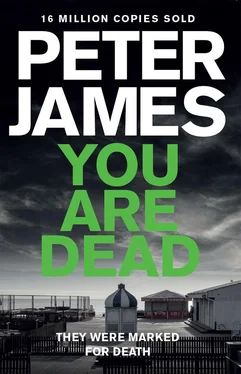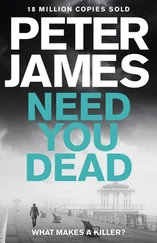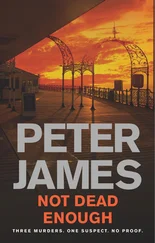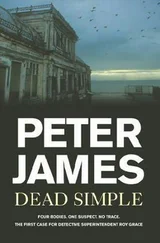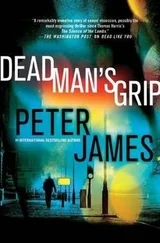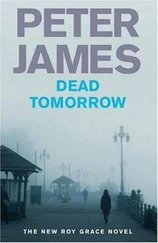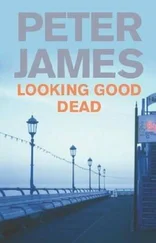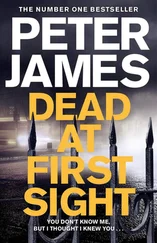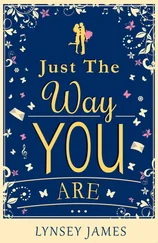Her mouth was dry and her lips were sticking together, but her body was clammy. She recognized the signals that she was desperately low on sugar. Soon, she would have a hypo and pass out.
Who had screamed earlier? Was there someone else in this place with her?
Anger had momentarily replaced the deep, sick sensation of fear inside her. How long had she been here? Wherever here was? Was it Jamie doing this? What was he going to do? Keep her here until she agreed to marry him after all? That sure as hell would be a great start to a life together.
Yeah, she broke it off, so I drugged her and locked her in a cellar and starved her and refused to give her any sugar or let her pee until she agreed to marry me.
Two weeks till Christmas. Two crucial weeks for her, for Chrissake. She was really starting to contribute to the clinic’s profits, and being able to put aside a little money to top up her savings would allow her to buy a small property for herself after she and Jamie parted.
But every day counted. She had no idea of the time, nor how long she had been here. It was her mother’s birthday today — if today was Friday — and she had planned to call her, in advance of driving this weekend to see her parents.
Compared to her previous boyfriend, who was serially unfaithful, Logan had found Jamie, initially, a breath of fresh air. He was kind and gentle, a good cook and she liked his humour.
It had only been as she got to know him better that she began to understand quite how limited Jamie was. In the first few months of dating, they did everything together. Drinks, meals, walks, movies, watching stuff on television. It was very gradually and subtly that she began to realize he really didn’t have many interests of his own, beyond watching sport on television and occasionally going to the AmEx stadium to watch Brighton and Hove Albion home games. He was like a chameleon, fitting into her life by adopting everything that she liked to do.
Last year, when she had begun training for the Brighton Marathon, he took up running for a short time, to train with her. She loved road cycling, so he bought a fancy road bike himself, to accompany her. In those early days she’d been all for it, it was nice to have companionship — not many of her friends were that sporty. But gradually she had started to miss her solitude. A big irritation had been three months ago, when she had joined a book group, and immediately, although he rarely read books, except genre thrillers, he asked to join too. After the first meeting at which he’d insulted everyone present by calling them pretentious nobs, he’d abandoned the idea.
He had taken it hard and been tearful when she’d told him she had decided she did not want to marry him, and they should go their separate ways. But never in her wildest dreams did she imagine he would do this to her, kidnap her and keep her prisoner.
If it was him.
It had to be him, surely?
Jamie was not a violent or cruel person. It didn’t make any sense. Was there something deeper in his character she had missed? Was he going to keep her down here until she agreed to marry him?
She saw a light moving. A faint green glow. Coming closer.
‘Jamie?’ she said. ‘Jamie, please, let’s talk.’
She heard something sliding above her head.
Then a beam shone directly in her eyes, momentarily dazzling her. The beam moved away for a moment.
Someone was standing right above her. Their face obscured by what looked like a gimp mask.
Then she felt something pressed against her lips. Something sweet. She tasted honey and gulped it down. Then two capsules were placed in her mouth, followed by water from a plastic cup.
She heard the sliding sound again above her. Then muffled footsteps receding.
As the sound faded she had a ghastly thought and a terrible slick of fear slid through her.
Was she being illogical in her thinking? What if it was not Jamie? Where did the man in the car park fit in? Were they working together?
What if this was a total random stranger?
Friday 12 December
Jacob Van Dam, seated behind his desk in his Harley Street consulting room, peered like a wise owl through small, round tortoiseshell spectacles. A diminutive figure, with large patches of liver spots across the top of his head and on the backs of his bony hands, the psychiatrist was dressed in a grey pin-striped suit that seemed a size too big for him, as if he had shrunk in the years since having it made, and his collar, knotted with a club tie of some kind, hung around the loose wrinkled flanges of his turkey-like neck.
During many years of practising forensic psychiatry, dealing with a wide range of violent criminals, he had been assaulted on a number of occasions, and these days preferred to keep the barrier of his desk in front of him, for safety.
At seventy-seven he was long past the age at which he could have retired, but he loved his work far too much to ever consider that. Besides, what the hell would he do if he did retire? He had no hobbies, his work had always been his life. He held an endless fascination with human nature — which he saw daily with his patients.
The walls around him were lined with books on medicine and on human behaviour, quite a few of them bearing his name on the spine. His published works, lined along one shelf, included a book on why the public had adored Princess Diana, and another which was considered the definitive analysis of the Yorkshire Ripper, Peter Sutcliffe, who had been convicted of murdering thirteen women. Further along were the three volumes of which he was most proud, which came out of his time working as a psychiatrist within the high-security psychiatric hospital Broadmoor, where one of the criteria to be an inmate was to be diagnosed criminally insane.
What had always intrigued him, from his earliest student days, was the whole notion of evil. Were some human beings born evil, or did something happen to turn them evil? And first, of course, you had to define evil. That was the topic he had explored in these three volumes, without coming to a conclusion.
In forty-seven years in psychiatry he had not yet found, definitively, any of these answers. He was still looking for them. Which was why he still came here every weekday morning and saw patients until the early evening, thanks in part to the understanding of his beloved wife, Rachel.
He was writing up his notes on the patient who had just departed from his office, an actor almost as old as himself who was unable to cope with the fact that women no longer threw themselves at him, when his secretary buzzed to announce that his next patient had arrived. Dr Harrison Hunter.
Hastily, he looked up the man’s name and the referral letter from his family GP, a Dr Edward Crisp in Brighton. The letter was short and terse and the first referral he’d ever had from this doctor. Harrison Hunter was suffering from anxiety, with frequent panic attacks, and Dr Crisp believed him to be delusional. Van Dam pressed his intercom button and asked his secretary to show him in.
Instantly, for reasons the psychiatrist could not immediately define, this new patient simultaneously both excited and intrigued him — but also sent a wintry chill through his bones.
Van Dam stood up to shake his hand then ushered him to sit on one of the two hard, leather-cushioned antique chairs in front of his desk. For a moment they were forced into silence as an emergency vehicle siren screeched by outside. As the siren faded the only sound for some moments was the hiss of the gas fire in the grate.
Harrison Hunter’s body language was extremely awkward. Fifty-five years old, according to the referral note, he looked pleasant enough, conservatively dressed in an off-the-peg business suit, dull shirt and clumsily knotted tie, tinted aviator glasses and sporting a mop of floppy blond hair rather like the style of the politician, Boris Johnson. The hair did not match the man’s eyebrows and he wondered if perhaps it was a wig.
Читать дальше
